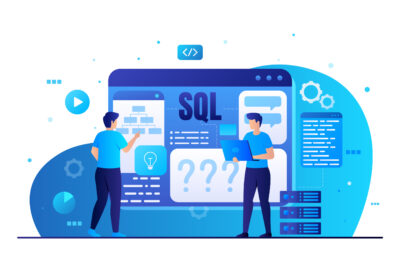Code reviews, debugging, writing tests… they’re part of the job, but they’re rarely the part that gets us excited. We’d rather be solving problems, building features, or scaling systems. And in 2025, AI is stepping up to handle more of that repetitive, high-cognitive-load work—without taking the fun out of coding.
Code Reviews: AI as Your First Reviewer
Instead of waiting for a teammate to approve your PR, tools like GitHub Copilot, CodeWhisperer, and CodeGuru can now do first-pass code reviews in real time:
-
Style suggestions (naming, formatting, structure)
-
Code smells detection (duplicated logic, unnecessary complexity)
-
Security checks (common OWASP flaws or misconfigurations)
-
Performance hints (like unindexed DB queries or unbounded loops)
It’s not about replacing human review—it’s about freeing up your team to focus on logic, design choices, and edge cases, not nitpicking semicolons or spotting a missing null check.
Writing Tests? AI’s Got Your Back
Nobody loves writing tests, but AI tools now generate:
-
Unit tests from your functions (with high branch coverage)
-
Integration test scaffolds that plug into your existing frameworks
-
Mock data generators tailored to your domain
Whether you’re using PyTest, JUnit, or Jest, the AI can generate boilerplate, suggest edge cases, and help maintain test coverage as your code evolves. Bonus: many tools integrate directly into your IDE, so you don’t even have to switch tabs.
Debugging: Faster, Smarter, Less Painful
AI doesn’t just point out that something’s broken—it can explain why. Here’s how:
-
Trace analysis & pattern recognition: Tools like Sentry, Raygun, or Lightrun use AI to spot recurring crash patterns before they hit production hard.
-
Natural language error explanations: Forget cryptic stack traces. New AI tools break down issues in plain English and suggest fixes.
-
Context-aware suggestions: IDE plugins (like Copilot in VSCode) detect what part of your code triggered the issue and suggest relevant lines to inspect.
Basically, debugging is becoming less guesswork, more guided troubleshooting.
Everyday Dev Tasks, Turbocharged
Beyond code review and debugging, AI’s already helping with:
-
Boilerplate generation (CRUD endpoints, data classes, configs)
-
Regex writing and parsing (no more trial-and-error testing)
-
Documentation (autogenerated README sections, inline docs)
-
API integration (auto-generate wrapper functions from OpenAPI specs)
The result? You spend less time on rote work, and more on solving hard problems.
But—Is It Reliable?
AI isn’t perfect. It’ll suggest the wrong fix sometimes. It won’t understand domain rules. It might hallucinate logic. That’s why your judgment still matters.
Think of AI like pair programming with a smart but naive assistant—they’ll do 80% of the grunt work, but you’ll need to review the results. It makes you faster, not replaceable.
Final Thought: AI Makes You a Better Engineer
By reducing time spent on low-value tasks, you can:
-
Dive deeper into architecture decisions
-
Spend more energy on performance tuning
-
Build cleaner abstractions
-
Actually enjoy writing clean, well-documented code
TL;DR: AI tools today won’t replace developers. They’ll augment you—by reviewing your code, catching bugs, writing tests, and suggesting fixes while you stay focused on the real work: building great software.
Have you tried letting AI debug or review your code yet? If not, this week might be a good time to start.





